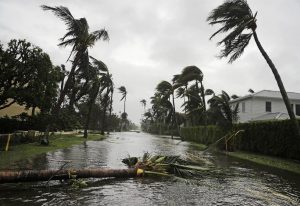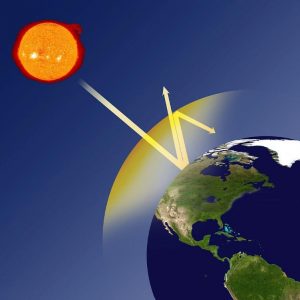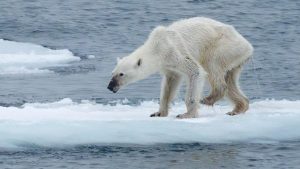Probably most well-known as “global warming”, the science behind climate change is one of the most hotly debated topics among people today. Although it is often a huge motivator behind the green movement, there are still those who fail to acknowledge its validity, many others who feel helpless about it, and very few who ask the real question: Man-made or not, does it actually matter?

A Brief Overview of Climate Change Science*
Imagine a greenhouse during the winter. Sunlight comes through the glass, warming the inside of the greenhouse, despite the cold outside. This is because the sun heats the inside of the greenhouse, its soil and plants faster than the heat can escape.
The same is true of the Earth’s atmosphere. Our atmosphere traps most of the sun’s energy within natural gases and radiates it back to us; this is what makes our planet warmer than other planets. Without this natural “greenhouse effect” our planet would be an average of 60 degrees colder and uninhabitable.
During the past 200 hundred years (since the Industrial Age), the amount of gases trapped within our atmosphere has increased between 18-148% as our dependence on fossil fuels has risen. An increase of these gases means more heat is trapped within our atmosphere, slowly rising the global temperature and potentially making our planet uninhabitable
So What Causes Climate Change?
Here is a list of the many different natural occurrences that scientists say contribute to climate changes:
- Slight or drastic changes to the Earth’s orbit, affecting the amount of sunlight that reaches the Earth’s atmosphere
- Volcanic activity which can emit aerosols and carbon dioxide into the atmosphere, thus increase greenhouse gases
- Stronger or weaker solar intensity caused by occurrences within the sun which can lead to hotter or colder temperatures on Earth
- Natural seasonal changes, which lead to an increase in the release of carbon dioxide from warmer oceans in the summer or trees dropping their leaves in the fall.
- Changes in ocean currents, which shift air currents
- Continental drift, which change the flow of ocean and wind currents.

Here is a partial list of the possible contributions made by man to climate change:
- Urbanization and the destruction of natural habitats for urban sprawl
- Electricity or other sources of power or utilities produced by burning oil, coal or natural gas
- An overdependence on, poor maintenance of and inefficiency of automobiles
- Poor or short-sided community planning and the increase of suburban areas, making cities difficult or impossible to walk or bike
- Factory and industrial farming, its polluting runoff which kills natural habitats and its use of chemical pesticides, herbicides and fungicides
- Our highly disposable lifestyle, poorly crafted and short-lived goods, and wasteful personal and cultural habits
- An unhealthy dependency on chemicals, from the production of plastics to cleaning supplies to food preparation
- Deforestation done for building purposes, to increase unsustainable farming or production of paper goods or other unnecessary “things”
But Most Importantly, Does It Even Matter?
There is little doubt that our planet’s temperature is slowly rising. There is also little doubt that there is an increase in greenhouse gases. But as to why this is happening and if there is anything we can do to stop or reverse it, is difficult to know with certainty.
Throughout history, science has repeatedly changed its mind as more information becomes accessible or interpretable. Centuries, even decades, from now we will undoubtedly know more about what causes climate change than we do today. Therefore, it may be considered impossible to know precisely what causes climate change today.
But does that matter when what we can know is how we feel about the treatment of our planet and its resources: do we agree with deforestation or habitat destruction, a dependence on inefficient fossil fuels or a wasteful, a disposable lifestyle? We can make changes to those practices, not because of what causes climate change, and regardless of whether our actions will or will not have a serious impact on climate change in the future.
We can live a sustainable lifestyle, not out of fear of what might happen if we don’t, but because we believe it’s the right thing to do.







